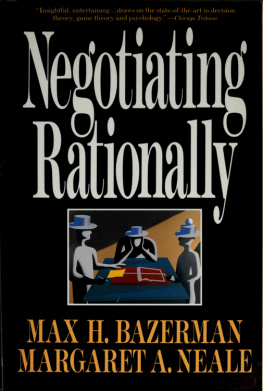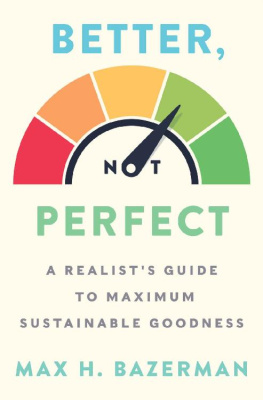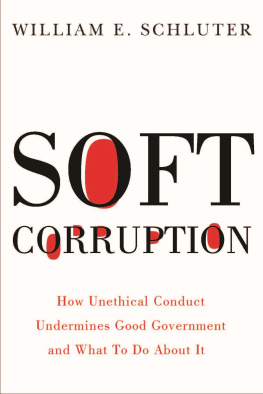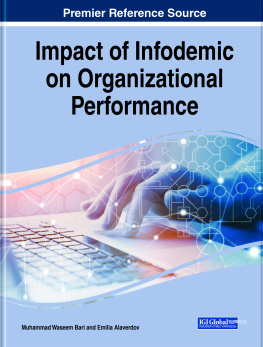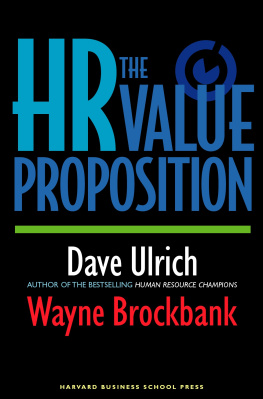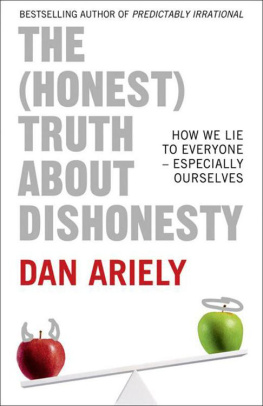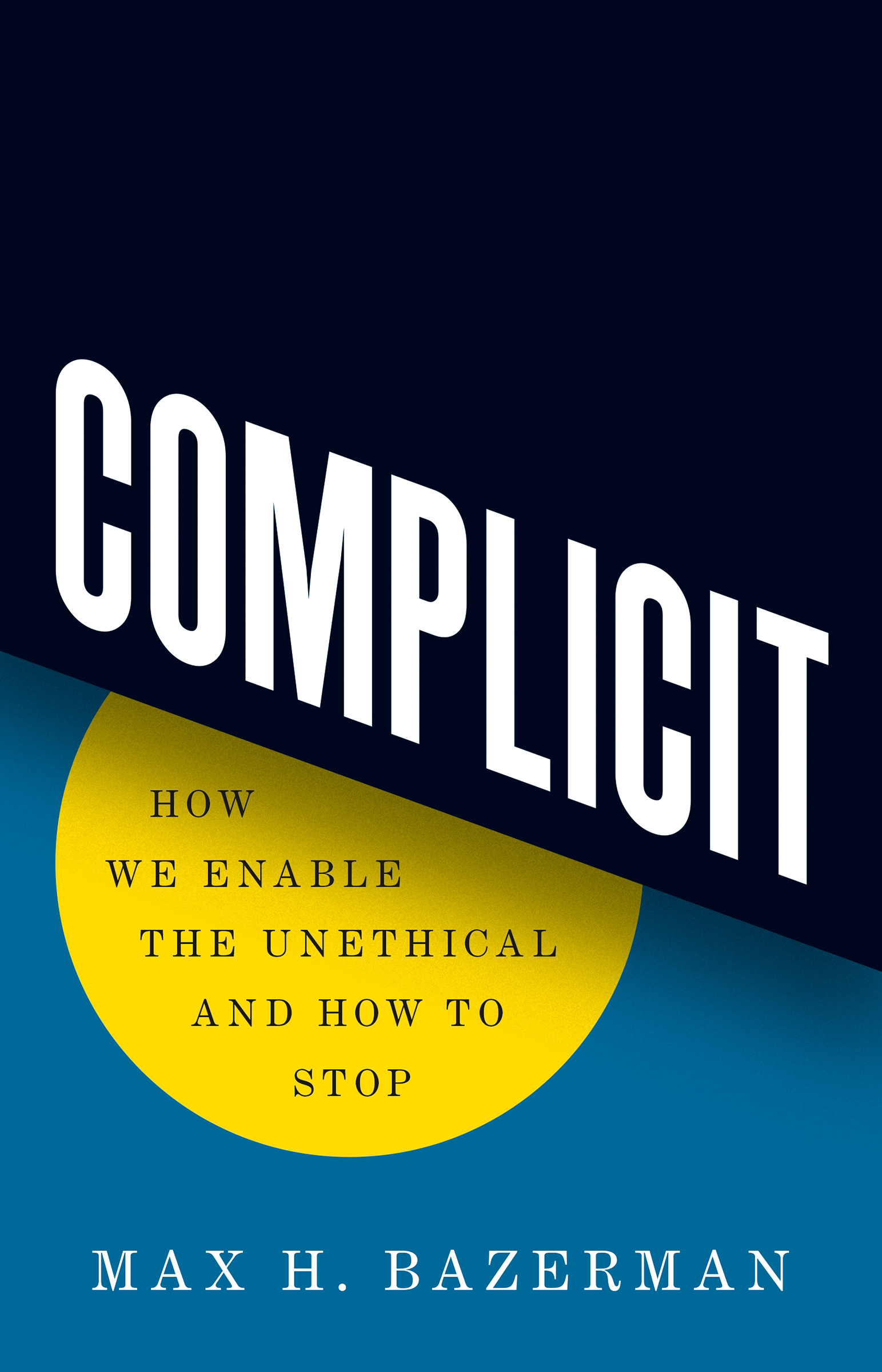COMPLICIT
Complicit
How We Enable the Unethical and How to Stop
Max H. Bazerman
PRINCETON UNIVERSITY PRESS
PRINCETON AND OXFORD
Copyright 2022 by Princeton University Press
Princeton University Press is committed to the protection of copyright and the intellectual property our authors entrust to us. Copyright promotes the progress and integrity of knowledge. Thank you for supporting free speech and the global exchange of ideas by purchasing an authorized edition of this book. If you wish to reproduce or distribute any part of it in any form, please obtain permission.
Requests for permission to reproduce material from this work should be sent to
Published by Princeton University Press
41 William Street, Princeton, New Jersey 08540
99 Banbury Road, Oxford OX2 6JX
press.princeton.edu
All Rights Reserved
Library of Congress Cataloging-in-Publication Data
Names: Bazerman, Max H., author.
Title: Complicit / Max H. Bazerman.
Description: Princeton : Princeton University Press, [2022] | Includes bibliographical references and index.
Identifiers: LCCN 2022013107 (print) | LCCN 2022013108 (ebook) | ISBN 9780691236544 (hardback) | ISBN 9780691236551 (ebook)
Subjects: LCSH: Business ethics. | EthicsPsychological aspects. | CorporationsCorrupt practices. | BISAC: BUSINESS & ECONOMICS / Business Ethics | PHILOSOPHY / Ethics & Moral Philosophy
Classification: LCC HV6768 .B39 2022 (print) | LCC HV6768 (ebook) | DDC 364.16/8dc23/eng/20220324
LC record available at https://lccn.loc.gov/2022013107
LC ebook record available at https://lccn.loc.gov/2022013108
Version 1.0
British Library Cataloging-in-Publication Data is available
Editorial: Joe Jackson, Josh Drake
Jacket Design: Karl Spurzem
Production: Erin Suydam, Lauren Reese
Publicity: James Schneider, Kate Farquhar-Thomson
Copyeditor: Anne Healey
This book is dedicated to the scholars most central to my understanding of ethics:
Mahzarin Banaji
Dolly Chugh
Joshua Greene
David Messick (deceased)
Don Moore
Ann Tenbrunsel
CONTENTS
- ix
- xi
PREFACE
This is the third book that I have written on ethics. My friend and coauthor Ann Tenbrunsel and I published the first, Blind Spots, in 2011. Blind Spots, based on collaborative research that Ann and I did between the mid-1990s and 2010, made an early contribution to the literature on the psychology of why good people often do bad things without their own awareness. Better, Not Perfect, published in 2020, moved in a more prescriptive direction, offering insights into how we can overcome barriers to behaving ethically. The book took many, many years to write, as I continually encountered relevant ideas from philosophy about which I needed to learn more. The timing of Complicit: How We Enable the Unethical and How to Stop was very different. At the time of the 2020 U.S. presidential election, I had no idea that I might write a book on complicity. A year later, the full book was drafted and had been read by many friends and colleagues. The book was inspired by the stunning and outrageously complicit behavior of so many people that culminated in a coup attempt threatening American democracy on January 6, 2021. How could so many people willingly play a role in allowing this coup attempt to happen?
As I started to learn the answers, I was struck by parallels among complicitors in so many of the most harmful events that have occurred in recent years. While I expect that most readers will not identify with the complicitors whom I describe in , to highlight the ubiquity of complicity.
ACKNOWLEDGMENTS
I spent the majority of my career studying the topics of decision-making (now often called behavioral economics) and negotiation. Both of these subject matters often run up against ethical issues, which increasingly interested me. And I have been surrounded by a large number of incredible colleagues who have helped me transition from decision-making and negotiation to the topic of ethics. Mahzarin Banaji, Dolly Chugh, Joshua Greene, David Messick, Don Moore, and Ann Tenbrunsel have all been core to providing me with the insights that were needed to be able to write Complicit.
I tend to get consumed with whatever project is currently on my desk. Thus, many colleagues and friends have experienced my obsession with complicity while I have been writing this book. I appreciate their tolerance, their disagreements with me, and their stories. I also shared earlier versions of the book with a number of friends and colleagues. Their insights sharpened my thinking, helped me avoid errors, and deepened what I think I now know about complicity.
I have had the great fortune to advise many scholars who have moved on to amazing scholarly careers. This group includes Modupe Akinola at Columbia University, Dolly Chugh at the Stern School at New York University, Kathleen McGinn at the Harvard Business School, Katy Milkman at the Wharton School, Don Moore at the Haas School at Berkeley, and Todd Rogers at the Harvard Kennedy School of Government. All six of them took time away from their own busy schedules to read (or, in Dons case, listen to) an earlier draft of their book. They have all improved the document that is now in your hands.
My most critical reader, once again, was my spouse, Marla Felcher. Marla has sensibilities that I lack and offers sharp guidance on where my writing has gone off the rails. I really appreciate her inputs, even when we are arguing about them. Linda Ginzel, Mike Tushman, Eric Eyre (author of Death in Mud Lick, a fascinating book about complicity in the opioid crisis), Elizabeth Sweeny, Mark Steitz, and anonymous reviewers for Princeton University Press all read part or all of earlier drafts and played important roles in making the book better. Dr. Kathryn Reed, an OB/GYN physician at the University of Arizona, took to attending executive programs at Harvard in the last few years and along the way became my friend and critical reader of my recent books. Joe Jackson, my editor at Princeton University Press, helped me through a series of wise decisions. And, as always, Katie Shonk, my personal editor, improved the ideas and most of the sentences throughout the book. To the extent that you find the book easy to read, you and I have Katie to thank for that.
Many of my books have been coauthored. At other times, as when writing Complicit, I became obsessed with a topic that was best written about on my own. Still, what I know about ethics has been profoundly affected by my colleagues and coauthors. There are dozens of others whose ideas have shaped how I think about ethics, complicity, and related topics. Learning from this broad and amazing community of friends has been a joy. Thank you for all of your insights.
COMPLICIT
The Complexities of Complicity
In 2004, as the opioid crisis was taking off in the United States, McKinsey, the global management consulting firm, began selling advice to Purdue Pharma on how to increase sales of its opioid drug OxyContin. McKinseys work for Purdue continued until 2019, many years after Purdue pleaded guilty in 2007 to misbranding the drug and opioid addiction had become a devastating national epidemic. In 2021, McKinsey agreed to a $573 million settlement with forty-seven U.S. states for working to help turbocharge Purdues sales efforts.


